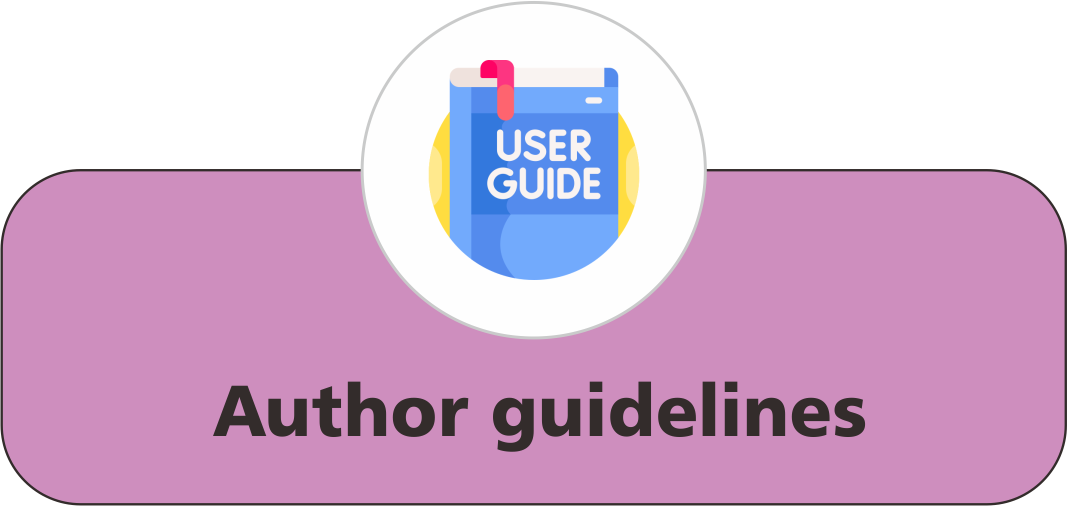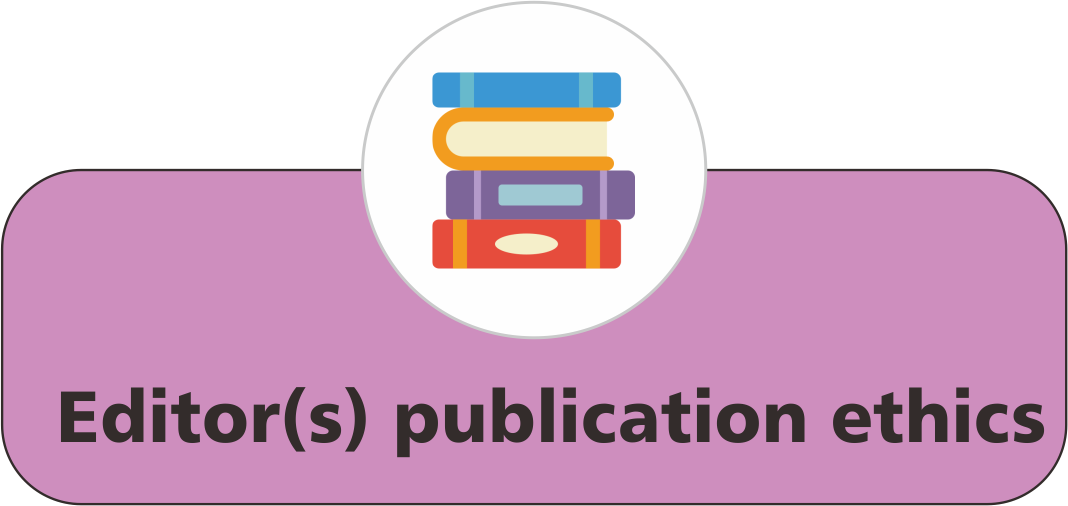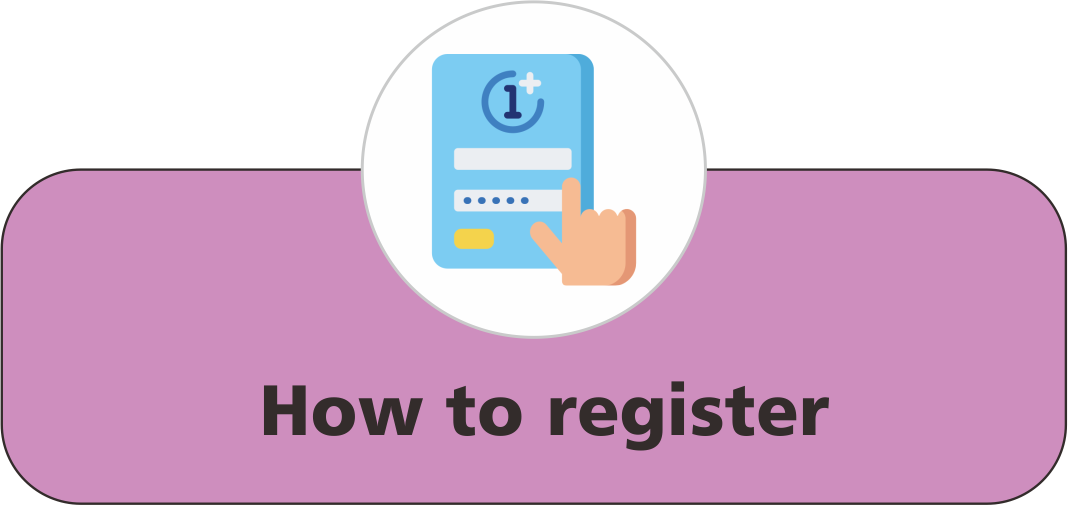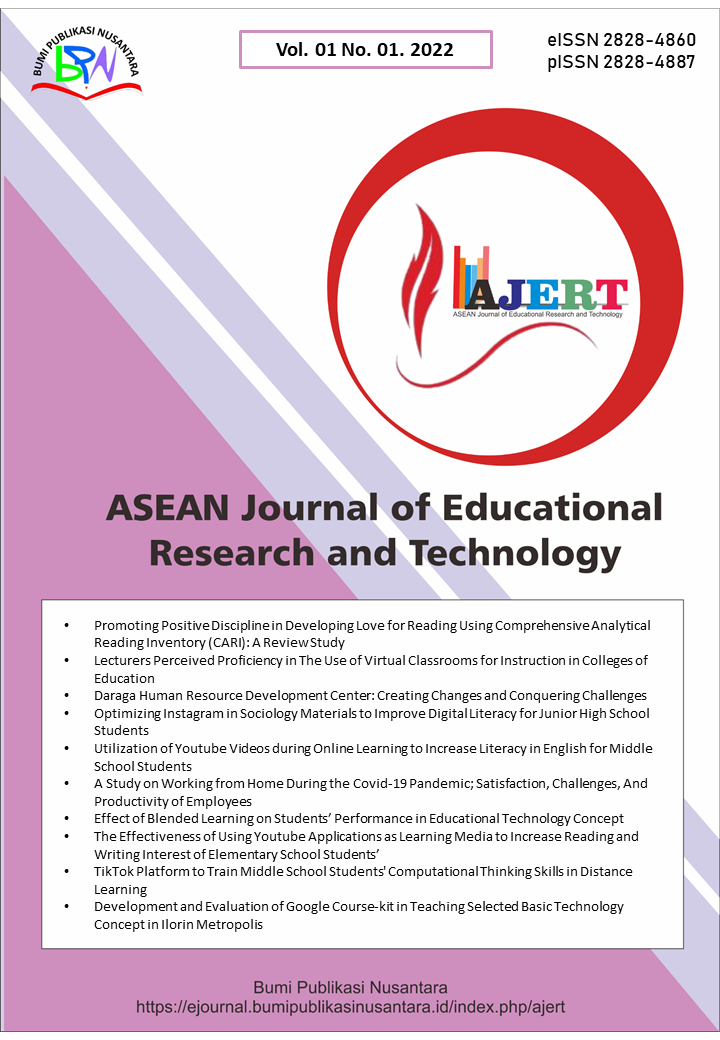Acceptance and Commitment-Therapy Based Counseling Group to Improve Self-Confidence of Junior High School Students
 ), Adelia Kusuma Sriandi(2), Elisabeth Christiana(3), Michael Adeniyi Omoyemiju(4),
), Adelia Kusuma Sriandi(2), Elisabeth Christiana(3), Michael Adeniyi Omoyemiju(4),
(1) Universitas Negeri Surabaya
(2) Universitas Negeri Surabaya
(3) Universitas Negeri Surabaya
(4) Obafemi Awolowo University
 Corresponding Author
Corresponding Author
Abstract
This study investigated the effectiveness of group counseling based on Acceptance and Commitment Therapy (ACT) in enhancing self-confidence among junior high school students, using a true experimental pretest-posttest control group design. Two instruments were employed: treatment and measurement. The treatment instrument consisted of a guide for implementing group counseling, while the measurement instrument was a self-confidence inventory. The findings demonstrated that ACT-based group counseling effectively enhances self-confidence among junior high school students. The study provided two recommendations: (i) for guidance and counseling teachers, ACT-based group counseling can be applied to strengthen students’ self-confidence and support their developmental understanding; and (ii) for future researchers, given that ACT-based counseling incorporates six core processes (acceptance, cognitive defusion, being present, self-as-context, values, and committed action). Future studies may explore its effectiveness with additional or alternative techniques.
Keywords
References
Akbari, O., and Sahibzada, J. (2020). Students’ self-confidence and its impacts on their learning process. American International Journal of Social Science Research, 5(1), 1-15.
Alsadi, M., Oweidat, I., Khrais, H., Tubaishat, A., and Nashwan, A. J. (2023). Satisfaction and self-confidence among nursing students with simulation learning during COVID-19. BMC nursing, 22(1), 327.
Astuti, I., Haryati, E., and Atika, A. (2022). Pengembangan model resiliensi akademik berbantuan konseling kelompok. Jurnal Teknologi Pendidikan, 15(2), 116–125.
Bayat, B., Akbarisomar, N., Tori, N. A., and Salehiniya, H. (2019). The relation between self-confidence and risk-taking among the students. Journal of Education and Health Promotion, 8(1), 27-31.
Beasley, J. J., Ieva, K. P., and Steen, S. (2023). Reclaiming the system: Group counseling landscape in schools. Professional School Counseling, 27(1a), 2156759X231160715.
Cao, J., Sun, P., Zhang, L., Chen, X., Gui, W., Ou, A., and Ma, L. (2022). Effects of acceptance and commitment therapy on self-management skills and psychological resilience of young and middle-aged patients underwent percutaneous transluminal coronary intervention for primary myocardial infarction: A pilot study. Trials, 23(1), 1–8.
Chamidah, D. (2025). The influence of self-confidence through language development programs on arabic communication learning outcomes of Indonesian students. Asalibuna, 9(01), 143-156
Chen, J. H., Zheng, H., Drake, B., and Jonson-Reid, M. (2023). Explaining adolescent problematic behavior: An application of the family stress model and the Family Investment Model. Journal of Child and Family Studies, 32(7), 1977-1988.
Davis, C. H., Klimczak, K., Aller, T. B., Twohig, M. P., and Levin, M. E. (2024). Reach, adoption, and maintenance of online acceptance and commitment therapy at a university: An implementation case study. Psychological Services, 21(2), 355.
El-Ashry, A., and Nashwan, A. (2024). Value component of acceptance and commitment therapy (ACT) among patients with schizophrenia. Academia Mental Health and Well-Being, 1(1).
Elita, Y., Sholihah, A., and Sahiel, S. (2017). Acceptance and commitment therapy (ACT) bagi penderita gangguan stress pasca bencana. Jurnal Konseling dan Pendidikan, 5(2), 97–
Finsrud, I., Nissen-Lie, H. A., Ulvenes, P., Melsom, L., Vrabel, K., and Wampold, B. (2022). Confidence in the therapist and confidence in the treatment predict symptomatic improvement week by week in therapy: A latent curve modeling approach. Journal of Counseling Psychology, 69(6), 823.
Freeman, D., Freeman, J., Ahmed, M., Haynes, P., Beckwith, H., Rovira, A., and Rosebrock, L. (2024). Automated VR therapy for improving positive self-beliefs and psychological well-being in young patients with psychosis: A proof of concept evaluation of Phoenix VR self-confidence therapy. Behavioural and Cognitive Psychotherapy, 52(3), 277-287.
Fung, K. (2015). Acceptance and commitment therapy: Western adoption of Buddhist tenets?. Transcultural Psychiatry, 52(4), 561–576.
Gottlieb, M., Chan, T. M., Zaver, F., and Ellaway, R. (2022). Confidence‐competence alignment and the role of self‐confidence in medical education: A conceptual review. Medical Education, 56(1), 37-47.
Gunawan, A., and Oriza, I. I. D. (2023). Fisibilitas acceptance and commitment therapy (ACT) dalam setting kelompok untuk meningkatkan self-efficacy pada mahasiswa dengan kecemasan sosial. Jurnal Empati, 12(2), 94–102.
Ibrahim, Afriana, D., Yusmansyah, Y., and Utaminingsih, D. (2018). Upaya mengurangi perilaku bullying di sekolah dengan menggunakan layanan konseling kelompok. Fakultas Keguruan dan Ilmu Pendidikan, 1, 1-15.
Jekauc, D., Fiedler, J., Wunsch, K., Muelberger, L., Burkart, D., Kilgus, A., and Fritsch, J. (2025). The effect of self-confidence on performance in sports: A meta-analysis and narrative review. International Review of Sport and Exercise Psychology, 18(1), 345-371.
Koivuhovi, S., Marsh, H. W., Dicke, T., Sahdra, B., Guo, J., Parker, P. D., and Vainikainen, M. P. (2022). Academic self-concept formation and peer-group contagion: Development of the big-fish-little-pond effect in primary-school classrooms and peer groups. Journal of Educational Psychology, 114(1), 198.
Lasut, Z. J., and Kusumiati, R. Y. E. (2024). The relationship between self-confidence and social interaction in adolescents from divorced families in Manado City. Journal of Indonesian Social Sciences, 5(5), 1227.
Loban, M. N., Naisanu, M. F., and Solle, L. (2024). Development of group counseling guideline using modeling technique to enhance self-management. The International Journal of Counseling and Education, 9(2), 39-47.
Moneva, J., and Tribunalo, S. M. (2020). Students’ level of self-confidence and performance tasks. Asia Pacific Journal of Academic Research in Social Sciences, 5(1), 42-48.
Moran, J. (2010). ACT for leadership: Using acceptance and commitment training to develop crisis-resilient change managers. The International Journal of Behavioral Consultation and Therapy 2011, 7(1), 66–75.
Nadhira, S. (2023). Dampak bullying terhadap gangguan PTSD (Post-Traumatic Stress Disorder) pada siswa sekolah dasar. DEWANTECH Jurnal Teknologi Pendidikan, 1(1), 49-53.
Nuraini, A., and Hartini, N. (2021). Peran acceptance and commitment therapy (Act) untuk menurunkan stres pada family caregiver pasien kanker payudara. Jurnal Ilmu Keluarga dan Konsumen, 14(1), 27–39.
Oktafiani, Z., and Yusri, Y. (2021). The Relationship of Self Confidence to Students Learning Achievement. Counseling and Humanities Review, 1(1), 20-26.
Ortiz-Ordoñez, J. C., Stoller, F., and Remmele, B. (2015). Promoting self-confidence, motivation and sustainable learning skills in basic education. Procedia-Social and Behavioral Sciences, 171, 982-986.
Padakokal, F. M., Ruliati, L. P., Damayanti, Y., and Lerik, M. D. C. (2024). The Relationship between bullying behaviour and self-confidence in high school adolescents. Journal of Health and Behavioral Science, 6(1), 31-45.
Poon, J. A., Thompson, J. C., and Chaplin, T. M. (2022). Task-based functional connectivity patterns: Links to adolescent emotion regulation and psychopathology. Journal of affective disorders, 302, 33-40.
Rashwan, Z. I. (2023). Motivation inspiring confidence: Effect of scenario-based learning on self-confidence among prelicensure nursing students. Teaching and Learning in Nursing, 18(3), e1-e8.
Ritonga, D. A., Azmi, C., and Sunarno, A. (2021). Peran Acceptance Comitment Therapy Terhadap Kepercayaan Diri Atlet Pencak Silat Pelatda Sumatera Utara. Jurnal Ilmu Keolahragaan, 20(01), 65-72.
Rumbruren, A. M., and Hamzah, I. (2024). Peran acceptance and commitment therapy (ACT) bagi burnout anak binaan LPKA Kelas I Tangerang. Liberosis: Jurnal Psikologi dan Bimbingan Konseling, 7(1), 31-40.
Serva, S. G. P., Ray, A. A., Wati, I., and Siregar, U. H. (2023). the influence of height on self-confidence in students. APLIKATIF: Journal of Research Trends in Social Sciences and Humanities, 2(2), 91-95.
Silvia, T., Yandri, H., & Juliawati, D. (2022). Peningkatan Kepercayaan Diri Siswa Berbicara di Depan Kelas Melalui Layanan Bimbingan Kelompok Teknik Sosiodrama. Jurnal Mahasiswa BK An-Nur: Berbeda, Bermakna, Mulia, 8(2), 9-15.
Stankov, L., Lee, J., Morony, S., Lee, Y. P., Parker, P. D., Marsh, H. W., and Bong, M. (2014). Noncognitive psychological processes and academic achievement Special issue Editors: Jihyun Lee and Lazar Stankov. Educational Psychology, 34(1), 1-8.
Steen, S., Melfie, J., Carro, A., and Shi, Q. (2022). A systematic literature review exploring achievement outcomes and therapeutic factors for group counseling interventions in schools. Professional School Counseling, 26(1a), 2156759X221086739.
Sudirman, A. M., Junaid, R., and Tamallo, I. I. (2020). The correlation between students’ self-confidence and speaking performance. Journal of Linguistics and English Teaching Studies, 1(2), 79-90.
Wahlbeck, H., Kvist, L. J., and Landgren, K. (2018). Gaining hope and self-confidence—An interview study of women’s experience of treatment by art therapy for severe fear of childbirth. Women and Birth, 31(4), 299-306
Wahyudi, W. (2020). Layanan konseling kelompok dalam upaya meningkatkan percaya diri peserta didik. IJoCE: Indonesian Journal of Counseling and Education, 1(1), 13-16.
Webster, M. (2011). Introduction to acceptance and commitment therapy. Advances in Psychiatric Treatment, 17(4), 309–316.
Wei, H., and Luo, Y. (2025). Uncovering the state of academic motivation, achievement emotion, self-confidence, and achievement goals in online/offline language instruction. Learning and Motivation, 89, 102085.
Wilbrecht, L., and Davidow, J. Y. (2024). Goal-directed learning in adolescence: Neurocognitive development and contextual influences. Nature Reviews Neuroscience, 25(3), 176-194.
Zhu, X., and Shek, D. T. (2021). Problem behavior and life satisfaction in early adolescence: Longitudinal findings in a Chinese context. Journal of Happiness Studies, 22(7), 2889-2914.
Article Metrics
Abstract View : 415 times
: 415 times Download : 232 times
Download : 232 times
Refbacks
- There are currently no refbacks.
Copyright (c) 2025 Bumi Publikasi Nusantara

This work is licensed under a Creative Commons Attribution-ShareAlike 4.0 International License.









